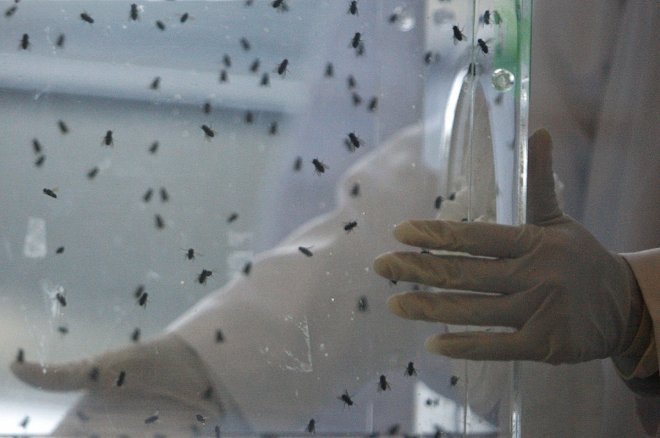
This year's Nobel Prize in Medicine has been awarded to U.S. biologists Jeffrey C. Hall, Michael Rosbash and Michael W. Young for their findings on "Molecular Mechanisms that control internal body clocks."
The award was announced on Monday, Oct. 2, at the Nobel Forum at Karolinska Institute, Stockholm, Sweden by Prof. Thomas Perlmann, Secretary of the Nobel Committee for Physiology or Medicine.
The research done on fruit flies has helped in the discovery of a clock mechanism named as the biological clock or internal circulation rhythms in living organisms. Their research findings showed how the living organism cells contain a gene named as 'Period' gene which regulates releasing of 'PER protein' in cells.
The PER protein levels would be high in the cells during the night and it would reduce during the daytime. The protein has the capability to block the functioning of period gene and hence it stops its own production. This helps in regulating the levels of PER protein in the cells according to the cyclic rhythm of day and night. These help animals, plants and humans to adapt to the revolution of the Earth.
Lags are caused in the biological clocks when a person travels to a different time zone region. This results in a condition known as Jet lag which results in health conditions including sleeplessness, depression and even results in heart attacks. These conditions are caused by the difference in internal circulation rhythms which is based on the cellular level functioning. The adjustment of the organism to the surrounding day and night conditions is necessary to cope up with the jet lag and similar conditions.
A separate branch of study named as Chronobiology has evolved to research on such conditions. The research by the new Nobel laureate scientists had started in 1984 by studying fruitflies' response to day and night conditions. The researchers said the findings of the research have to be applied in medical science for its actual benefits.
Similar research on biological clocks was earlier conducted by researchers. A 18th-century research by astronomer Jean Jacques d' Ortous de Mairan on mimosa (touch me not plant) had found that the plant followed a similar routine of daily biology cycle even when it is kept in darkness.
Another research by Seymour Benzer and his studied Ronaldo Konopka on fruit flies in 1970's found that mutation in an unknown gene disrupts circadian clock of the flies. The researchers had named the gene 'period'.
The body clock influences alertness, hunger, metabolism, fertility, mood and other phycological conditions in living beings. Further research is being undertaken on erratic sleep and working pattern of people, as well as late-night waking up of kids.
Nobel committee member Christer Hoog told Reuters, "We are learning more and more what impact it has to not follow your clock. If you constantly disobey your clock, what will happen? Medical research is going on with regards to that."
Jeffrey Hall and Micheal Rosbash are from the Brandeis University in Boston and Micheal Young is from the Rockefeller University in New York.









